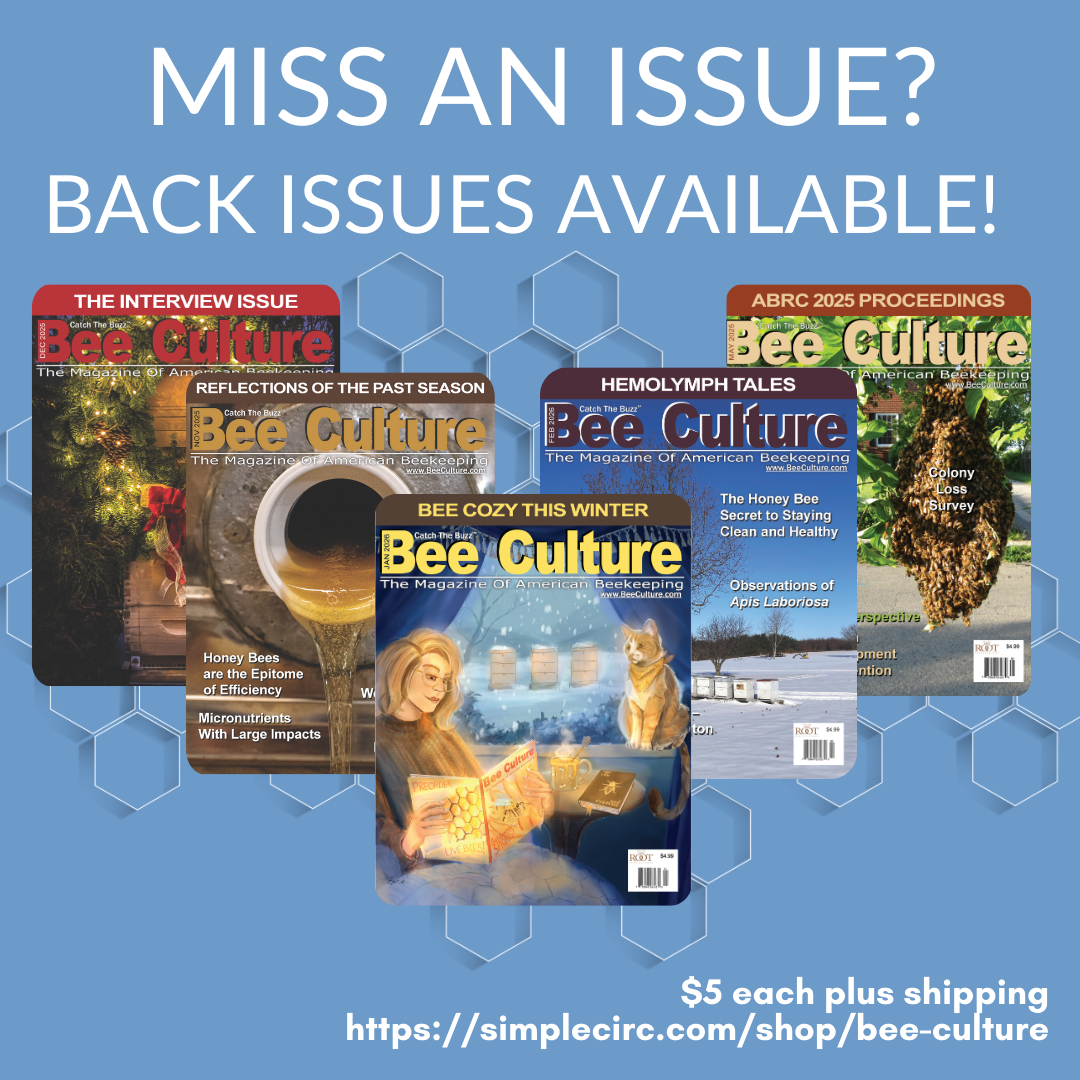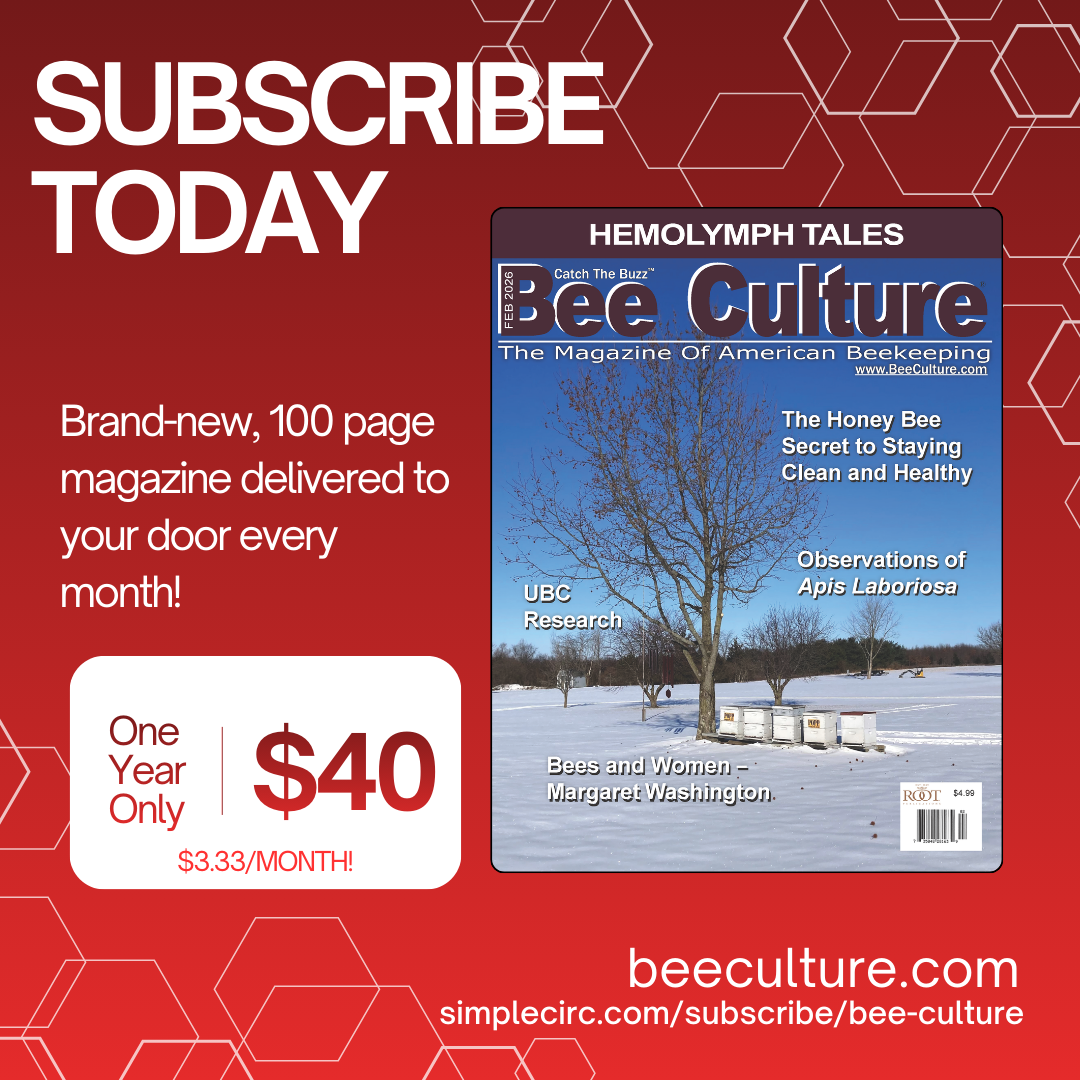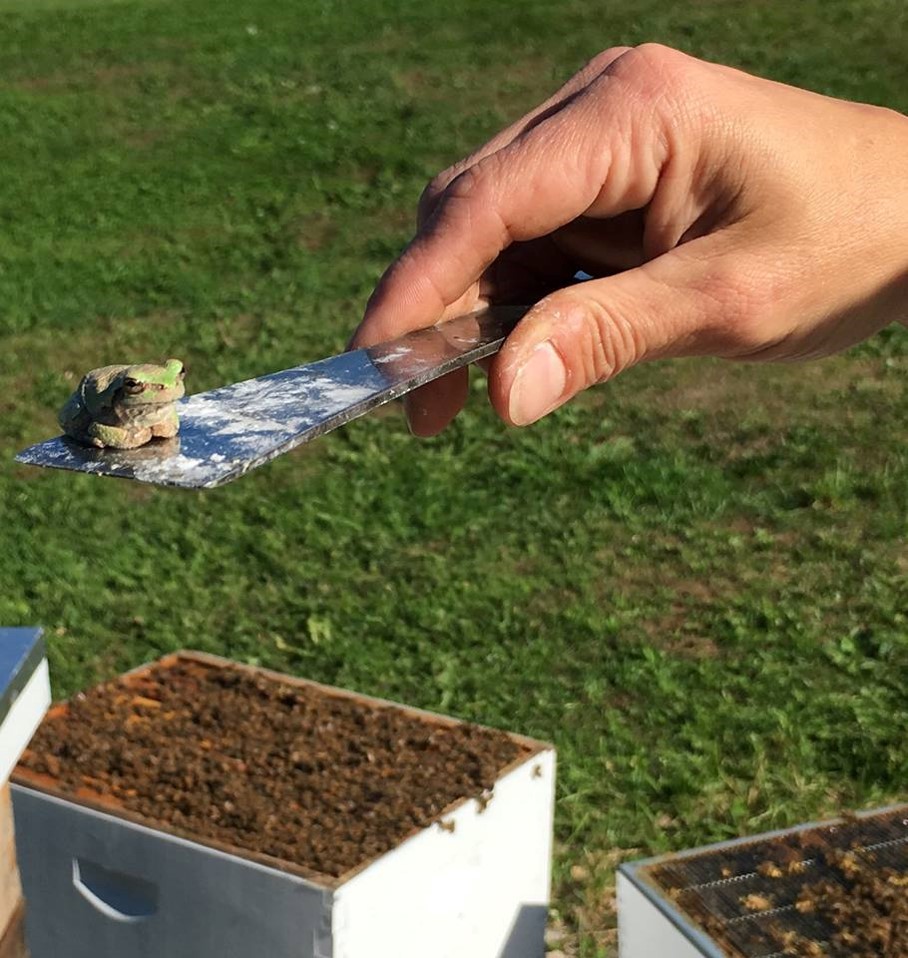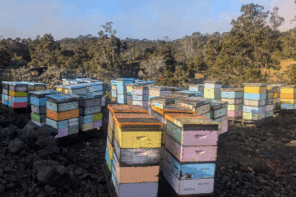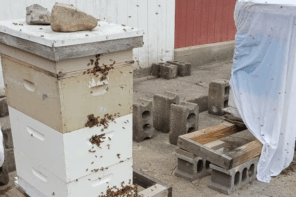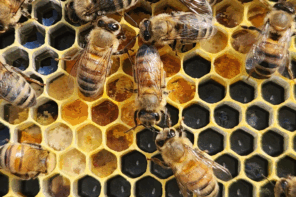Summer Bee Convention Conversation Starters
By: Becky Masterman & Bridget Mendel
Beekeeping is a solitary occupation. Many of us are drawn to the peace of being out with the bees, quiet and focused. Let’s all agree that the best beekeeping companion is one who also gets into the zone; lifting and passing frames almost wordlessly, taking their cues from the hives, working seamlessly together to get whatever job done.
Then convention season hits and suddenly a group of solitude-prone individuals sharing an obsession with social insects, get social. For the new attendee, it can seem like everyone has known each other for decades (many have) and are too busy catching up with old friends to meet a newcomer. At a dinner party, your beekeeping habit fascinates the other guests, but amongst beekeepers… it pretty much still does!
Beekeepers talk bees. For the convention hesitant, we’ve created a little guide to getting social. We do encourage you to attend a convention or two and binge on enough new beekeeping information to last the year.
Let me show you my favorite bee photo!
A great bee themed photo can be a nice conversation starter. If you want to become the center of a crowd, choose a mysterious photo with a tricky brood disease and have people guessing. Photos of bees on flowers always get the nectar conversations flowing. Interesting creatures visiting your hives is a good way to bond with someone from another geographic region (“What? I’ve never seen that type of bumble bee!”). Swarms you’ve caught are fun to look at, and super bad mite infestations are always crowd pleasers (as long as it’s your photo, not theirs).
So, how do you monitor and manage your varroa?
If you are a beekeeper, you are also an unwilling varroa manager. While you might not like the response you get to this question, everyone will have one. Your varroa conversation might get scary if you are talking with someone who says their bees don’t have varroa (perhaps they are into magical realism – you could suggest a novel by Isabell Allende. Or you could ask them about the weather in Australia!). Maybe you’ll hear that your new friend is intimidated by testing their bees for mites? Time to name drop the the Honey Bee Health Coalition’s Varroa Management tool. (You can sound hip by randomly knowing that their 8th edition is out soon – even better than before!) We suggest bookmarking the website. Be prepared to go deep sharing varroa management strategies. Perhaps you can convince a sad annual loser of bees that there is indeed hope, if they face their mite problem head on.
https://honeybeehealthcoalition.org/resources/varroa-management/
Hey, did you hear about the Minnesota Honey Producers Association’s Habitat Committee?*
Luckily, the MHPA, led by President Dave Schroeder and his bee habitat loving membership, eagerly supported this organizational initiative. We are admittedly extra biased regarding this conversation starter as we think that every beekeeper should be thinking about bee habitat. Follow up this question with, “Does your local beekeeping club have a Habitat Committee?” It would be a game changer if every beekeeping club had a dedicated committee to: 1) create partnership opportunities with governmental agencies, community groups and the public and 2) report habitat and nutrition research to the membership. Our honey bees deserve an organized effort to get more flowers into the ground.
*The authors both disclose that they are members of the MHPA Habitat Committee
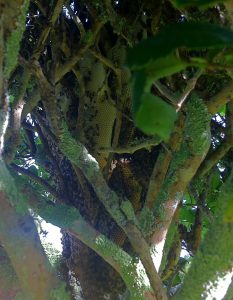
This photo was taken on a trip to Bermuda where the beekeepers were
even lonelier than the bees! It is a great way to get a conversation
started, especially with weather envious northern climate beekeepers.
Photo Credit: Rebecca Masterman
Did you know that (insert state here) has (insert number here) different species of native bees?
What a great way to let your fellow beekeepers know that you take an interest in both honey bees and native bees. With the concern about endangered and threatened native bee species, now is the time for beekeepers to step up and commit to keeping the conversation about supporting all pollinators, not just honey bees. Simply learning more about the native bees in your area can make a difference. In preparation for this conversation starter, we suggest a little Googling. You will be surprised at how much you can learn about your state’s native bees in a simple Google search.
Have you heard about honey bee anarchy?
A body of research work by Dr. Ben Oldryod in the 1990’s investigated worker reproduction in honey bee colonies (Baron et al. 2001). A more recent anarchy study reported a subset of workers raised in recently swarmed, temporarily queenless colonies as having more ovarioles and being more likely to lay their unfertilized eggs even after new queens emerge (Woyciechowski et al. 2012). This less often discussed honey bee topic might be fun to bring up with a fellow beekeeper: https://www.sciencenews.org/article/rebel-honeybee-workers-lay-eggs-when-their-queen-away
Do you know how to get propolis stains out of clothes?
Sometimes conferences are disconcerting: there are so many beekeepers wearing clean clothes! You yourself might feel weird without your propolis-stained bee jacket and syrup-caked boots. Whether or not you’ve gotten propolis out of your clothes is worthy of discussion. And if so, how? https://sciencing.com/remove-bee-propolis-stains-7712909.html
How did you get into beekeeping?
The best part of a convention is learning from the beekeeping elders and hearing crazy beekeeping stories. A few years back, the U of MN Bee Lab and Minnesota Extension’s Dr. Katie Lee spearheaded a collaboration with Story Corps and the American Beekeeping Federation where beekeepers could interview each other about their stories. It’s a treasure trove and worth exploring: https://archive.storycorps.org/communities/american-beekeeping-federation/ But for regional conventions without a story corps booth, try out some of the questions that really get beekeepers talking: how did you get into beekeeping? What do you think about the future of beekeeping? What do your bees mean to you?
We hope to have inspired some shyer beekeepers to get out there and join the Summer convention fever. Try out our conversation prompts. And email us to let us know what happened.
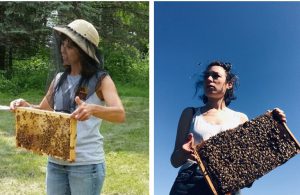
Becky Masterman led the UMN Bee Squad from 2013-2019. Bridget Mendel joined the Bee Squad in 2013 and has led the program since 2020. Photos of Becky (left) and Bridget (right) looking for their respective hives. If you would like to contact the
authors with your own convention conversation
success stories or other thoughts, please send an email to mindingyourbeesandcues@gmail.com
References:
Barron, A., Oldroyd, B. and Ratnieks, F. (2001) Worker reproduction in honey-bees (Apis) and the anarchic syndrome: a review. Behav Ecol Sociobiol 50, 199–208. https://doi.org/10.1007/s002650100362
Woyciechowski, M and Kuszewska, K Swarming Generates Rebel Workers in Honeybees (2012) CAMBRIDGE: Elsevier Inc Current biology Vol.22 (8), p.707-711.
Acknowledgment
The authors would like to thank Dr. Marla Spivak for helpful edits and suggestions.


